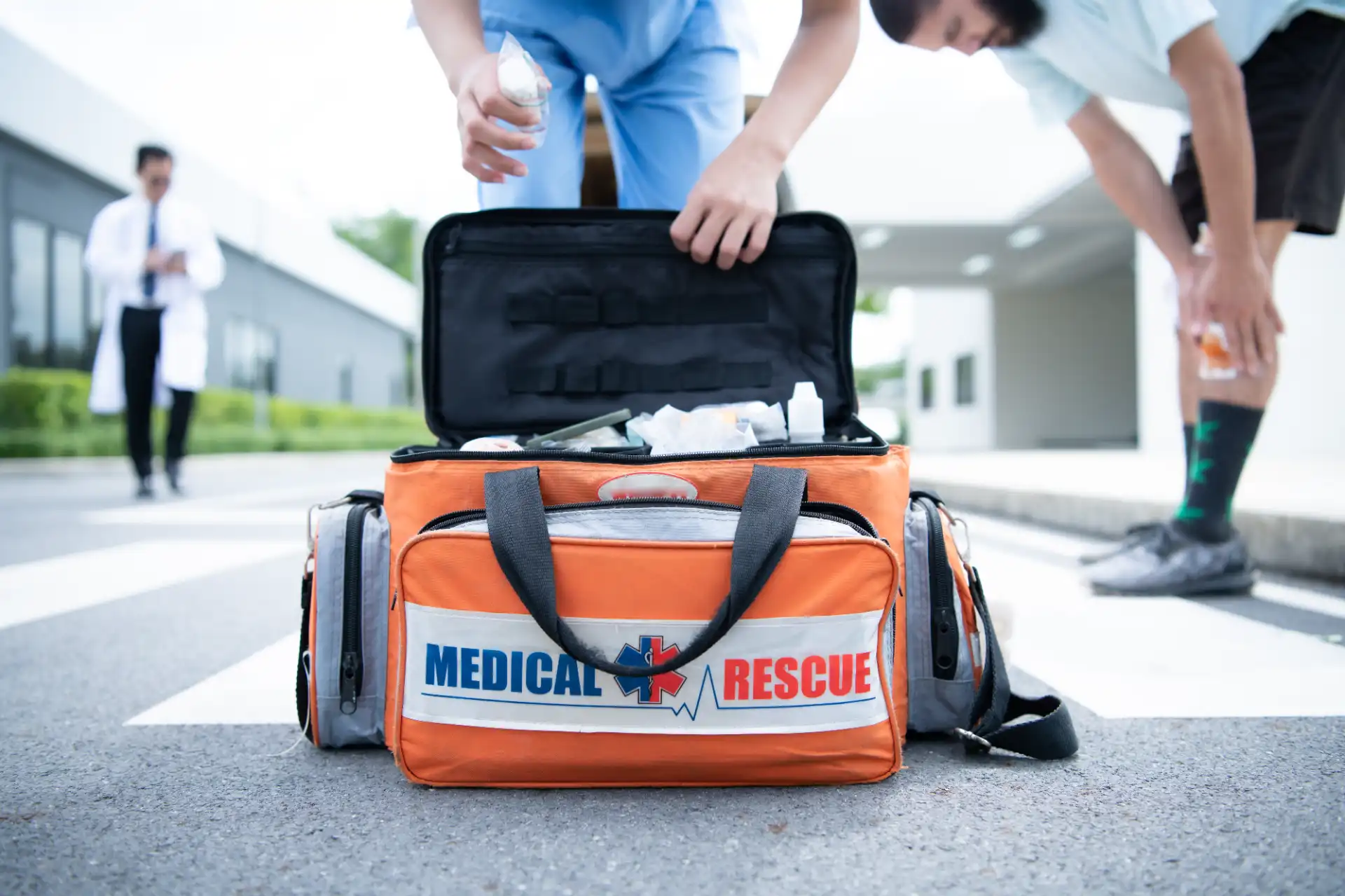Top 7 Medical Skills Every Prepper Should Learn in 2025
In a true survival situation, help may not be on the way. Hospitals may be overwhelmed, ambulances delayed, or communications completely down. That’s why mastering medical skills for preppers is one of the most critical steps you can take in 2025.
Forget relying on apps and telehealth. When the grid fails or you’re days from professional care, your training could be the only thing keeping you—or someone you love—alive.
Below are the top 7 medical skills every prepper should know and practice, whether you’re sheltering in place or bugging out off the grid.
1. Wound Cleaning and Infection Control
Infections are one of the leading killers in survival situations—not the injury itself, but what follows. Learn to:
- Clean wounds using saline, iodine, or purified water
- Apply antiseptics and cover with sterile dressings
- Spot early signs of infection (redness, swelling, fever)
Bonus Tip: Honey, sugar, and garlic can be used in a pinch as natural infection fighters.
2. Stop Bleeding (Hemorrhage Control)
Major blood loss can kill in under five minutes. You must know how to:
- Apply direct pressure and elevate the wound
- Use tourniquets properly (commercial or improvised)
- Pack wounds using gauze or hemostatic agents (like QuikClot)
Always carry a trauma kit that includes gloves, gauze, pressure bandages, and a CAT tourniquet.
👉 Related: Restoration Tools & Techniques
3. CPR and Rescue Breathing
CPR (Cardiopulmonary Resuscitation) can keep blood and oxygen flowing when the heart stops. Combine it with rescue breathing if the person isn’t breathing at all.
- Learn proper chest compression depth and rhythm (100–120 bpm)
- Practice rescue breathing and airway clearance techniques
- Know when to stop (after help arrives or you’re exhausted)
Take a CPR certification class—it’s one of the best time investments you’ll ever make.
4. Splinting and Immobilization
Fractures and sprains are common in disasters. Improper handling can cause long-term damage or disability.
- Learn how to splint arms, legs, fingers, and ankles
- Improvise with sticks, rolled-up shirts, or cardboard
- Secure above and below the injury without cutting circulation
Also understand how to stabilize the neck and spine in trauma cases.
5. Basic Burn Treatment
Fires, stoves, and boiling water accidents increase in grid-down scenarios. Treat burns fast and properly:
- Cool with clean water (not ice)
- Cover with sterile, non-stick dressings
- Avoid butter or grease-based home remedies
Stock burn gels and know how to recognize signs of infection and dehydration that follow burns.
6. Managing Shock and Trauma
Shock occurs when the body can’t circulate enough blood. It’s deadly—and often overlooked in injuries.
- Lay the person flat and elevate the legs
- Keep warm and calm
- Monitor breathing and consciousness
Recognize cold skin, rapid pulse, and confusion as early warning signs.
7. Off-Grid Medication Management
If pharmacies are closed or hospitals are unreachable, you’ll need to manage conditions with what you have.
- Stockpile essential meds (antibiotics, insulin, inhalers, antihistamines)
- Use natural substitutes when appropriate (like willow bark for pain)
- Keep printed dosage charts and expiration tracking logs
Bonus: Take a “fish antibiotics” course if you’re considering veterinary-grade backups.
👉 Also read: Bug-In Survival: Stay Safe Without Leaving Home
Essential Prepper Medical Tools
Alongside your knowledge, make sure you have:
- Israeli bandages and trauma shears
- SAM splints and finger splints
- Digital thermometer and blood pressure cuff
- Stethoscope and pulse oximeter
- Field guide: “Where There Is No Doctor” or “Prepper’s Medical Handbook”
Conclusion: Your Brain Is the Best Medicine
Gear can fail. Help can be hours or days away. But the skills you learn today stay with you forever. By mastering these medical skills for preppers, you’re not just increasing your chances of survival—you’re becoming a resource, a healer, and a protector in your community.
✔️ Keep learning and prepping:
- Survival Psychology: Staying Mentally Strong in Crisis
- Grid Down Survival: How to Live Without Power
Train. Treat. Thrive.
